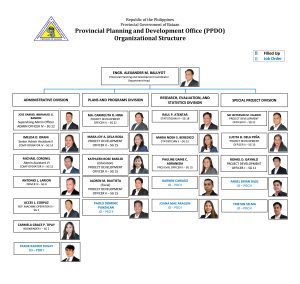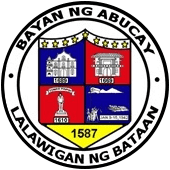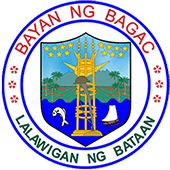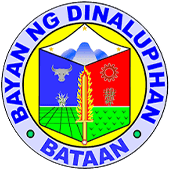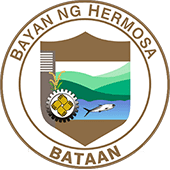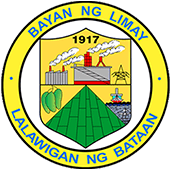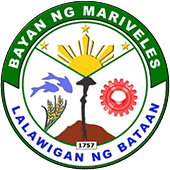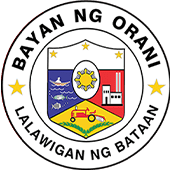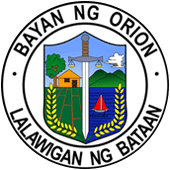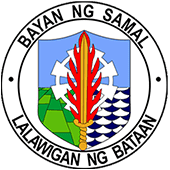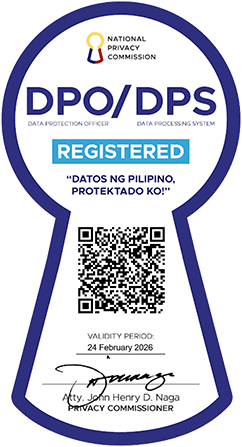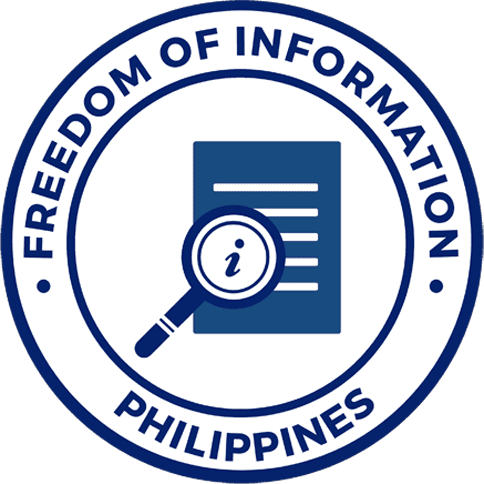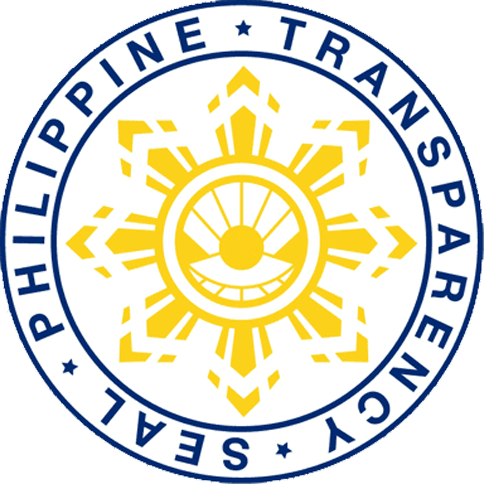Provincial Planning and Development Office
- Home
- Provincial Planning and Development Office
- Provincial Governor’s Office
- Office of the Vice-Governor
- Sangguniang Panlalawigan
- Provincial Administrator’s Office
- Office of the Provincial Accountant
- Provincial Treasurer's Office
- Provincial Budget Office
- Provincial Assessor's Office
- Provincial Health Office
- Provincial General Services Office
- Provincial Engineer's Office
- Office of the Provincial Agriculturist
- Provincial Legal Office
- Provincial Information Technology Office
- Provincial Information Office
- Provincial Human Resources & Management Office
- Provincial Population Office
- Provincial Veterinary Office
- Public Employment Services Office
- Provincial Planning and Development Office
- Provincial Government – Environment and Natural Resources Office
- Provincial Cooperative & Enterprise Development Office
- Provincial Tourism Office
- Provincial Social Welfare and Development Office
- Provincial Disaster Risk Reduction and Management Office
- Bataan Public-Private Partnership and Investment Center
- Provincial Warden
- Iskolar ng Bataan
- Internal Audit Services
- Metro Bataan Development Office
- Cultural Heritage Preservation Division
- Bagac Community and Medicare Hospital
- Bataan Human Settlement Office
- Jose C. Payumo Jr. Memorial Hospital
- Mariveles District Hospital
- Orani District Hospital
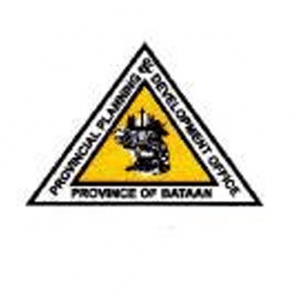
Mandate
Mission
Committed to work together and provide excellent public service.
Vision
By 2023, The PPDO will be at the forefront of Effective Local Development Planning leading Bataan to sustainable economic growth and progress.
Duties and Functions
- Formulate integrated economic, social, physical and other development plans and policies for consideration of the local government development council;
- Conduct continuing studies, researches and training program necessary to evolve plans and programs for implementation;
- Integrate and coordinate all sectoral plans and studies undertaken by the different functional groups or agencies;
- Monitor and evaluate the implementation of the different development programs, projects and activities in the LGU in accordance with the approved development plan;
- Prepare comprehensive plans and other development planning documents for the consideration of the Provincial Development Council;
- Promote people participation in development planning within the concerned LGU;
- Serve as the Secretariat of the Provincial Development Council (PDC); and
- Exercise such other powers and perform such other functions and duties as may be prescribed by law or ordinance.
- Overall administrative support to other office divisions.
- Personnel administration and service.
- Scheduling of office activities.
- Logistical Supply procurement and issuances management.
- Records management
- General clerical services, data encoding and reproduction.
- Budget preparation and other accounting services.
- Housekeeping and auxiliary services.
- Document reproduction and packaging services.
- Facilitation and management of office communications (e-mails, calls, letters, mail) and online accounts (social media/website/).
- Provide assistance to local and national government agencies and private sectors.
- Facilitate office personnel’s participation in inter-department programs and activities.
- Manage office personnels’ participation in capacity building activities.
- Provide assistance to external and internal clients as stipulated in the Citizen’s Charter.
- Preparation of the following office documents for processing:
- DTR
- Travel Order
- Purchase Request
- Liquidations
- Reimbursements
- Other financial transactions
Plans and Programs Section
- Facilitate/ provide Secretariat support to the Provincial Development Council (PDC) and Sectoral Development Committees;
- Evaluate incoming program/ project proposals and submit recommendation to the Local Chief Executive, SP, PDC and other authorities;
- Monitor and evaluate the income and expenditure patterns, and recommend fiscal plans and policies for consideration of the finance committee:
- PDIP
- AIP
- 20% Development Fund
- Statement of Allotment, Appropriation, Obligation and Balances (SAAOB)
- Draft/ prepare executive orders, certifications, resolutions, endorsements, as needed, for the approval/ adoption of the Local Chief Executive and the Sangguniang Panlalawigan;
- Facilitate/ coordinate/ monitor development programs of the local, provincial and national agencies:
- Seal of Good Local Governance (SGLG) Validation and Assessment
- SGLG Incentive Fund
- Devolution Transition Plan (DTP) and Analytics
- Capacity Development Agenda
- Civil Society Organization (CSO) Accreditation and other activities
- Comprehensive Development Plan (CDP) Assessment
- Barangay Development Masterplan
- Regional Development Council and Sectoral Development Committees
- Projects for External Funding
- Projects included in the General Appropriations Act (GAA) (FMRs, DOH-HFEP, DILG programs)
- Regional Project Monitoring and Evaluation System (RPMES) (NEDA initiative – status of implemented projects)
- Provincial Results Matrices (PRM) (DILG initiative – result of the implemented projects)
- Actively participate in inter-department programs and activities:
- Provincial Health Board
- Provincial Nutrition Council
- Provincial Council for the Protection of Children (PCPC)
- Child-Friendly Local Governance Council (CFLGC)
- Provincial Council in Anti-Trafficking-Violence Against Women and their Children (PCAT-VAWC)
Project Development Section
- Formulate sectoral development and investment programs/ plans:
- Provincial Development Physical Framework Plan (PDPFP);
(update sectoral profiles and prepare SWOT analysis) - Provincial Development Investment Program (PDIP);
- Executive-Legislative Agenda (ELA);
- Annual Investment Program (AIP), Supplemental AIP and the 20% Development Fund Program;
- Provincial Development Physical Framework Plan (PDPFP);
- Formulate feasibility studies, project proposals and case studies for sectoral development projects;
- Prepare comprehensive plans, presentation materials and development planning documents required/ needed by the Local Chief Executive and the Sangguniang Panlalawigan.
MONITORING SECTION
- Sectoral project management, monitoring and reporting of provincial, national and externally funded programs/ projects of the province;
- Administer field piloting of development system, strategies and plans formulated in the office and other PGB programs;
- Coordination with various local and national government agencies regarding program/ project implementation;
- Provide technical assistance to local (barangay, municipal and city), national government agencies, and private sector;
SPECIAL PROJECTS SECTION
- Prepare complex studies, conceptual development schemes and innovation project proposals;
- Prepare and manage Geographic Information System (GIS) thematic models for planning, analysis, and conceptual development considerations;
- Provide technical assistance/ consultations to researchers, students, and other stakeholders; and,
- Coordination with various local and national government agencies regarding special programs/ projects implementation;
- Actively participate in inter-department programs and committees.
RESEARCH AND STATISTICS SECTION
- Provide updated and substantial information for development planning;
- Gather and develop the Socio-Economic and Environmental Profile;
- Recommend improvements to the existing methodologies and data procedures to concerned department and agencies
- Collaborate with departments/agencies to recommend appropriate analysis, presentation tools, and interpretation for each type of data they are handling and incorporate such in their procedures;
- Analyze and interpret statistical data of various sectors obtained from the SEEP;
- Determine research priority areas/ research agenda relevant to the needs of the province;
- Conduct research studies that relate to developmental, scientific and technological requirements of the province;
- Identify plans and programs as result of analysis of statistical data;
- Provide technical assistance to local and national government agencies;
- Provincial Peace and Order and Public Safety Plan – POPS Plan
- Cities and Municipalities Competitiveness Index (CMCI)
- GAD database updating
- Seal of Good and Local Governance (SGLG)
- Safety, Peace & Order
- Business Friendliness & Competitiveness
- Sustainable Education
- Youth Development
- Introduce and adhere to standard concepts, definition and classifications pertaining to national statistical series;
- Philippine Classification of Individual Consumption According to Purpose (PCOICOP)
- Philippine Standard Classification of Education (PSCed)
- Philippine Standard Commodity Classification (PSCC)
- Philippine Central Product Classification (PCPC)
- Philippine Standard Industrial Classification (PSIC)
- Philippine Standard Geographical Code (PSGC)
- Philippine Standard Occupational Code (PSOC)
- Philippine Standard Classification of Crime for Statistical Purposes (PSCCS)
- Philippine Tourism Statistical Classification System (PTSCS)
- Provide Secretariat support to the Provincial Development Council, and;
- Actively participate in inter-department programs and activities:
MONITORING AND EVALUATION SECTION
- Develop, install and implement quality and performance monitoring, assessment and evaluation of plans, programs and projects implementation;
- Monitor and evaluate the implementation of the different programs, projects, activities in accordance with the approved development plans;
- Local Government Support Fund – FALGU
- Government Programs/Projects/Activities – Infra and Non-Infra
- Peace & Order and Public Safety Plan and Policy Compliance Monitoring System – (POPSP-PCMS)
- Provincial Peace and Order Council (PPOC) Performance Audit
- Provincial Anti-Drug Abused Council (PADAC) Performance Audit
- Provide recommendations on the results of the monitoring and evaluation activities;
- Coordinate with concerned departments to improve project implementation, monitoring and evaluation processes;
- Monitoring and updating agricultural products, other basic commodities and quality education;
- Formulate and evaluate the Annual Provincial Accomplishment Report.
Organizational Chart
PROJECTS, PROGRAMS and SERVICES
It involves the preparation, updating, or revision of DRR-CCA Enhanced PDPFP, PDIP, and AIP.
It involves the generation, processing, storage, and retrieval of sectoral planning information. Through the conduct of continuing studies and research, this office builds up new information for planning and programming. Feedback information collected through monitoring and evaluation of the impacts of the program and project implementation constitutes a major component of the planning database.
This involves culling out programs and projects that have local ownership and accountability from among the several sectoral plans of the DRR-CCA Enhanced PDPFP in order to incorporate them into the three-year PDIP and the AIP. The local Sanggunian can then implement the necessary procedures to draw private investment into the area.
This entails drafting resolutions, setting agendas, maintaining minutes and records, and handling other related matters connected to the Provincial Development Council’s activities (PDC).
- Executive Legislative Agenda (ELA)
- Annual Investment Plan (AIP)
- Provincial Development Council (PDC)
- Devolution Transition Plan (DTP)
- Capacity Development (CAPDEV)
- Provincial Development Investment Program (PDIP)
- Provincial Development and Physical Framework Plan (PDPFP)
- Provincial Project Monitoring Committee (PPMC)
- Preparation of Project Proposals / Feasibility Study / Concept Papers
- Geographic Information System (GIS)
- Municipal / City Land Use Plan
- Annual Accomplishment Report (AAR)
- Community-based Monitoring System (CBMS)
- Local Productivity and Performance Measurement System
- Socio-Economic Profile (SEP)
- Gender and Development Database
Accomplishment Report
The Provincial Planning and Development Office (PPDO) handles the development planning activities of the Provincial Government. It is the technical arm of the provincial organization, and its principal mandate is to assist the provincial government in setting development directions. The office is manned by 23 personnel – 18 of whom are technical officers and the rest are administrative staff.
Focusing on our Major Final Outputs on Planning and Programming, Knowledge Management, and Monitoring & Evaluation, the PPDO harmoniously and meticulously worked together to achieve their work targets in a timely manner.
- Prepared/ analyzed and submitted the following plans/ documents/ feasibility studies/ concept papers/ reports:
- 2023 Annual Investment Program
- 2022 Annual Accomplishment Report
- 2022 Socio-Economic Profile
- 2022 Annual and Monthly Reports on Price Monitoring of Basic Commodities and Quality of Education (Data Analytics Center)
- 2022-2024 Devolution Transition Plan (DTP)
- 2022-2024 Capacity Development Agenda
- 2023-2025 Executive-Legislative Agenda
- Provincial Development and Physical Framework Plan (PDPFP) 2019-2025 Mid-Term Update
- 2024 Priority List of PPAs for External Funding
- Barangay Development Master Plan (selected barangays)
- Feasibility Study of Orani Municipal Fishport
- Transit Oriented Development Plan of Orani, Bataan
- Provincial Commodity Investment Plan
- Development Plan of Sibul Nature Spring Resort in Abucay, Bataan
- Quarterly Report of Financial Analysis and Recommendations
- Quarterly Report of Government PPAs (Non-Infrastructure)
- Quarterly Report of LGSF-Financial Assistance to LGUs
- Quarterly Report of 20% Development Fund Utilization
Completed and delivered all the means of verification of the identified strategic initiatives for the year:
- Evidence-based data management for Bataan
- PPDO Web-based Platform
Lead office to facilitate/ coordinate/ assist in the conduct of various projects, programs, and activities:
- 2022 Seal of Good Local Governance (SGLG)
- 2022 Cities and Municipalities Competitiveness Index
- 2022 Peace and Order Council Audit
- 2022 Anti-Drug Abuse Council Audit
- Accreditation of Civil Society Organizations (CSOs)
- Philippine Rural Development Project (PRDP) – PPMIU Activities
- Community-Based Monitoring System (CBMS)
- National Resilience Council – Disaster Resilient Bataan (Infrastructure Pillar)
Lead Secretariat/ participated/ coordinated in the following special bodies/ committees/ councils meetings and activities:
- Provincial Development Council
- Provincial Project Monitoring Committee
- CDP-Technical Assessment Committee
- DTP Committee and Technical Working Group
- Provincial Peace and Order Council
- Provincial Anti-Drug Abuse Council
- League of Local Planning and Development Coordinators of the Philippines – Bataan Chapter
- Provincial Nutrition Council
- Provincial Child Welfare Council
- Provincial Statistics Committee
- Provincial Solid Waste Management Board
- Local Finance Committee
- Regional Development Council and Sectoral Committees
- Regional GAD Council
- Regional Nutrition Council
- Priority projects funded by DOE ER 1-94
Provided technical assistance/ participated in various projects, programs and activities/training and seminars of the following:
- Bataan-Cavite Interlink Bridge Project
- 2022 GAD Plan and Budget
- 2022 Entry to Most Business-Friendly LGU
- 2022 Entry to Galing Pook Award
- Local Road Network Development Plan (LRNDP) of Bataan
- Local Public Transport Route Plan (LPTRP) of Bataan
- Tourism Road Infra Prioritization Project Criteria (TRIPPC)
- Roads Leveraging Linkages of Industry and Trade (ROLL-IT)
- Tourism Infrastructure and Enterprise Zone Authority (TIEZA)
- CMGP Monitoring and Evaluation Activities
- PSRTI SDG Seminar 3
Participation in different programs implemented by the Provincial Government departments and National Government Agencies was achieved in order to provide coordinate and link the program to the approved investment plan and thrusts of the PGB. As the whole world adjusts to the new normal brought about by the unprecedented global health crisis of the coronavirus disease, the PPDO strictly followed health protocols and adopted a digital transformation for the efficient and effective delivery of our services, such as the preparation of the AIP and access to reference materials like the SEP, PDPFP, and DTP, among others.
Strategic planning and participative management are key practices to drive the commitment and performance of our employees to successfully meet the department’s work targets and deliverables.
Links:
Provincial Planning and Development Office
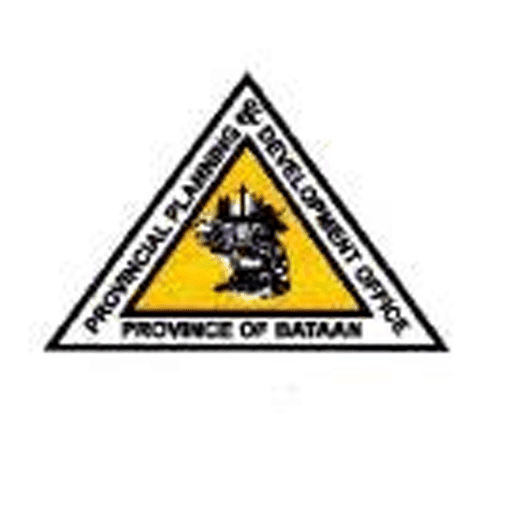 Mandate: To formulate framework plan in line to the established national policies & guidelines which will set the development direction accustomed in various multi-sectoral comprehensive plans and investment programming avowed to the thrust & priority of the Local Chief Executive. Coordinate, integrate and update social economic profile and information of the province. Monitor and evaluate programs, projects and activities being implemented and act as secretariat of the Provincial Development Council that will convey the will of the administration and in consideration of people’s participation pursuant to Local Governance Code of 1991 or R.A. 7160.
Mandate: To formulate framework plan in line to the established national policies & guidelines which will set the development direction accustomed in various multi-sectoral comprehensive plans and investment programming avowed to the thrust & priority of the Local Chief Executive. Coordinate, integrate and update social economic profile and information of the province. Monitor and evaluate programs, projects and activities being implemented and act as secretariat of the Provincial Development Council that will convey the will of the administration and in consideration of people’s participation pursuant to Local Governance Code of 1991 or R.A. 7160.
5th Floor, The Bunker @ The Capitol Compound, Tenejero, Balanga City, Bataan 2100
The Bunker
@ The Capitol Compound
Tenejero, Balanga City, Bataan 2100
Mon – Fri: 8:00 am – 5:00 pm


